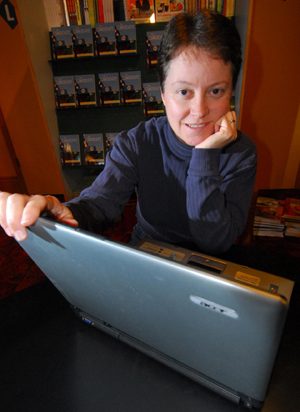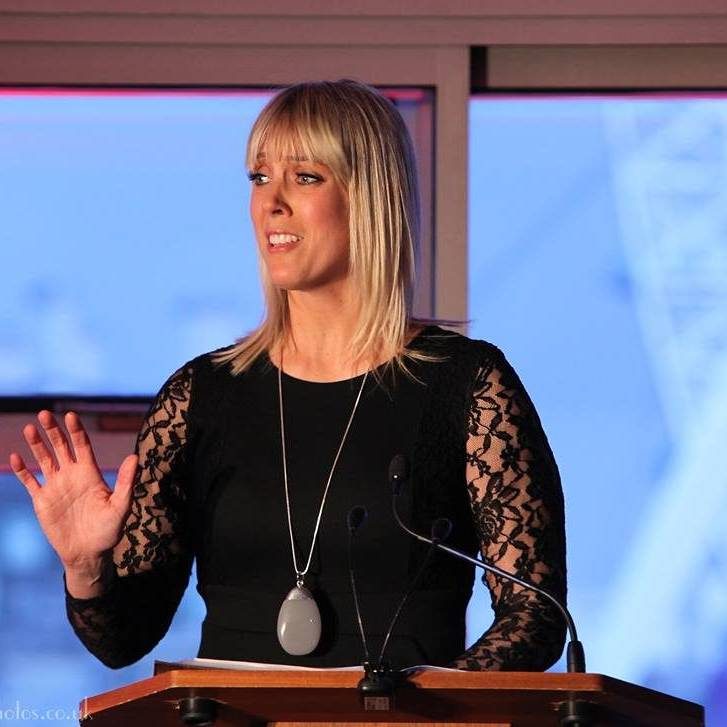
The Canadian author and Lambda Award finalist talks about her book, No Rules of Engagement.
Journalist and Canadian author, Tracey Richardson’s latest novel, No Rules of Engagement, is an intriguing exploration of women in the military who happen to fall in love with each other. Tracey has been writing fiction on and off for the past two decades, and No Rules of Engagement was a Lambda Literary Award finalist in the Best Lesbian Romance category. She shares her thoughts on this exciting time, her opinion on gays in the military, and what’s next for her.
First off, congratulations on becoming a finalist for the Lambda Literary award [this interview was conducted before the awards]. What an exciting honour. Are you attending the awards ceremony?
Thank you very much! It’s a very exciting time for me, my first finalist honours for the Lammys! I will be in New York for the awards on May 27. I will also be in Chicago on May 4 for a public reading among other Lammy finalists.
You really capture what was happening in Afghanistan from both the perspective of Logan—a doctor/soldier and Jill—a photojournalist. Has your job as a journalist ever brought you overseas?
Most of my 20-year career in the news business has been behind a keyboard editing others’ stories and selecting the stories, photos, columns, and viewpoints from around the world that the readers of my newspaper will see each day. And so I have always had a hand in trying to expose readers to other views from around the world via news stories, and my novel writing is much the same. For me, it’s really about putting the reader in someone else’s shoes and seeing life through their filter. Working as a newspaper editor has certainly given me tremendous access to news accounts of the war in Afghanistan, and so this inspired me to put fictional characters into the situation and experience the war through them. I’m attracted to fiction that has a very real-life element to it.
What was your original inspiration for the novel? Are any of the characters or situations based on your real life?
First off, when I began to consider writing a romance novel set in the war, I was surprised to learn that it hadn’t been done yet in the lesbian genre, or at least not with any great significance. I really felt it was about time, because the War on Terror is a part of our lives and has been for years. We probably all know someone who has a connection to someone who has served, and certainly the war consumes a lot of our daily news. It’s history in the making. But mostly, the inspiration for the story really just came from my own interest in wanting to explore more about the war. We hear and read a lot about the war from a political and moral perspective, for instance, should we be over there fighting. But I wanted to learn as best as I could, without actually visiting the war zone, what it is like to actually be in the war and how that might shape your views. And it did change my views, once I really began to understand more about it (No Rules of Engagement required a ton of research). As for the characters, they really came from an amalgamation of people and experiences throughout my life. Every person you have ever had a meaningful relationship with becomes a part of who you are, and you can’t help but express who you are in your writing.
Your characters did not overtly express their personal opinions about the war, Logan in particular seemed to compartmentalize that thought. Was that a conscious decision on your part—to write a military-based story without sending an overt pro-war or anti-war message?
I think a fiction writer can quite easily get their opinions across without clobbering the reader over the head with them. But really, for me, the point is to get the reader thinking about things and seeing things from a different perspective through the characters and their situations. The reader can then form her own opinions, or not. As for the soldier/doctor character (Logan) compartmentalizing her feelings about the war, I think that is necessary for any professional. Whether you’re a cop, a CEO, a journalist, whatever, to a large degree you have to be able to put aside your personal feelings and biases in order to do your job, and this is what Logan does, or attempts to do as best she can.
Canada has a policy that allows gays to serve openly in the military. That is an issue your American neighbours are struggling with right now. What is your opinion on the matter?
Your sexual orientation has absolutely no bearing whatsoever on your ability to do your job. This shouldn’t even be a topic of discussion in this day and age, and it’s sad that, in some countries, it still is. To suggest your sexual orientation somehow compromises your ability to do your job is nothing but homophobia and discrimination of the worst kind. I am proud of my country for its laws, which are entirely equitable across the board now for every citizen. And guess what? Our military is doing just fine, thank you!
I don’t want to spoil the ending, but what do you think is next for Logan and Jill?
I’ve been considering writing a sequel, with the looming question being, will Logan do another stint in the war, or will she remain settled in domesticity practising civilian medicine? Other characters would be introduced too, but really, a sequel is hardly more than a seed yet in my mind!
What books or authors have been inspirational to you as you began writing fiction?
Katherine Forrest, who was born in the same city as I was (Windsor, Ontario, Canada), was my first inspiration for writing lesbian fiction. I admire so many writers in the gay/lesbian genre, and I think the quality of the writing in this genre very easily matches or possibly surpasses anything from the straight world. I admire myriad writers from Graham Greene to Wally Lamb to Emily Giffin in mainstream fiction. I take a little something from everything I read in terms of inspiration.
What are you reading now?
Right now I happen to be reading the old Herman Wouk classic, Marjorie Morningstar. At the same time, I’m reading a book on the history of the City of Chicago.
What’s next for you?
Blind Bet is my next book, due out in the fall. It features two women who have just survived catastrophic events in their lives…one narrowly misses being on a plane that crashes into the sea, the other’s long-term relationship has just crashed to a sudden halt. The wreckage of their lives tests them in surprising ways, and each must decide if they will bet on love. It’s once again the kind of book that required a fair bit of research. As a journalist, I’ve come across a lot of stories about plane crashes and I’ve always wondered what it would feel like to miss a connection, or somehow miss being on that plane that crashes and how that might change your life. Writing about it allows me, and readers I hope, to experience it vicariously.
You can read more about Tracey Richardson on her website: traceyrichardson.net.


